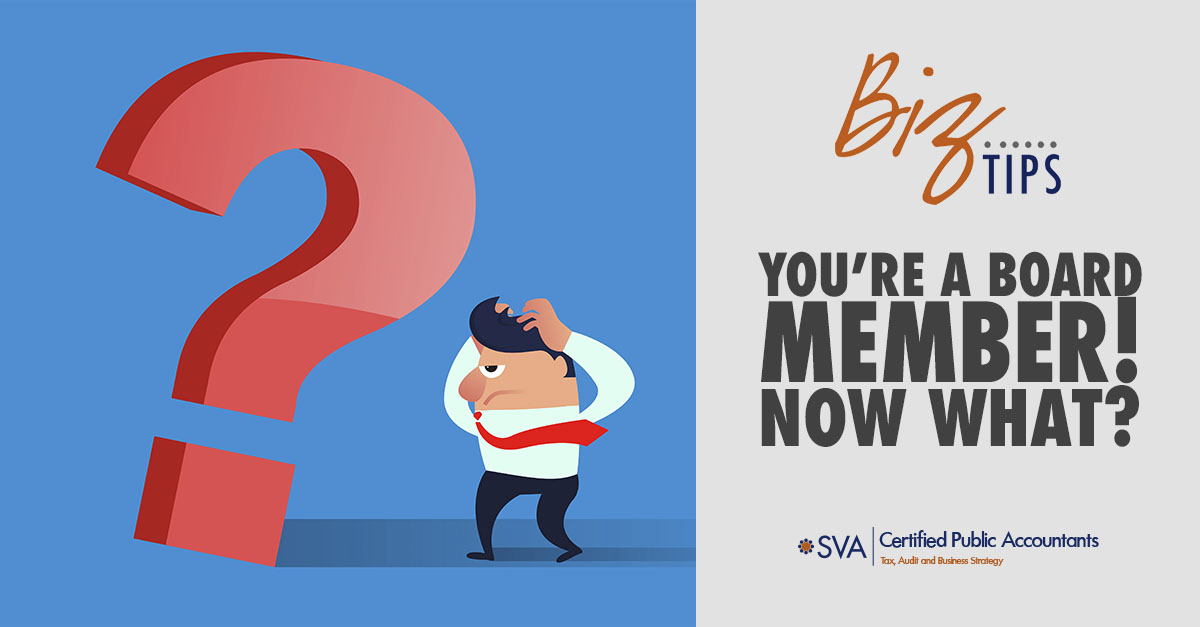| Highlights: |
- The article explains that joining a board is both an honor and a legal, fiduciary responsibility requiring active engagement in governance and organizational mission support.
- It outlines eight core board duties, including strategic planning participation, financial oversight, leadership support, recruitment, legal/ethical compliance, and safeguarding assets.
- The post emphasizes ongoing education and training to help board members understand their roles and contribute effectively to organizational success.
|
Joining a board of directors is both an honor and a significant responsibility.
As a board member, you're entrusted with shaping the organization's direction, establishing governance and financial oversight, and safeguarding its mission through responsible stewardship.
This role isn't just ceremonial—it's a legal and fiduciary commitment to ensure resources are used effectively and ethically in support of the organization's goals.
Top 8 Board Member Responsibilities
“Since much of the conversation at recruitment time is spent focused on the vision and mission of the organization, sometimes specific board and fiduciary responsibilities aren’t communicated.” says Kirsten Houghton, Principal at SVA Certified Public Accountants. To recruit a high-functioning, effective board, she recommends that the following responsibilities be discussed during the recruitment process:
1. Mission and Purpose
Board members must commit their energies to ensure that the mission is considered and followed when making strategic and programmatic decisions.p
2. Leadership Support
The board of directors ensures that management understands their responsibilities and provides the support needed to management to assist in the furtherance of the goals of the organization.
3. Strategic Planning
To create and adhere to an effective strategic plan, board members must actively participate in the planning process by creating and developing objectives and goals to guide the use of the organization’s resources.
4. Financial Resources
Board members, or a subset of the board, can assist with the development of the organization’s annual budget and create strategies to obtain adequate financial resources to fulfill the organization’s mission.
5. Board Recruitment
To create a dynamic and diverse board of directors, prerequisites for potential new board members should be developed and followed during the recruitment process. Orienting new board members and evaluating each member’s performance will keep the board of directors functioning effectively as time passes.
6. Programs and Services
The mission of the organization should be reflected in the organization’s program service offerings. Each board member is responsible for reviewing current and proposed program services to determine if each aligns with the vision and mission of the organization.
7. Legal and Ethical Standards
Board members are responsible for adhering to legal and ethical norms by collectively exhibiting diligence and commitment to compliance, transparency, and accountability of the actions of board members.
8. Asset Protection
Every organization’s goal is to generate and hold assets to provide for the financial support of the mission. Board members are responsible for safeguarding those assets on behalf of the donors to ensure the funds are spent as intended.
(Download Video Transcript)
Education is Key: SVA is Here to Help
Board member education is the key to creating and sustaining an effective board. “As part of SVA’s ongoing commitment to the community, we offer a customized Board Building Training Series that brings the organization’s leadership and board members together to participate in hands-on educational training,” says Houghton. “When our training program is completed, board members will not only understand board governance but they will also learn their roles and responsibilities in connection with their service to the organization.”
© 2019 SVA Certified Public Accountants

